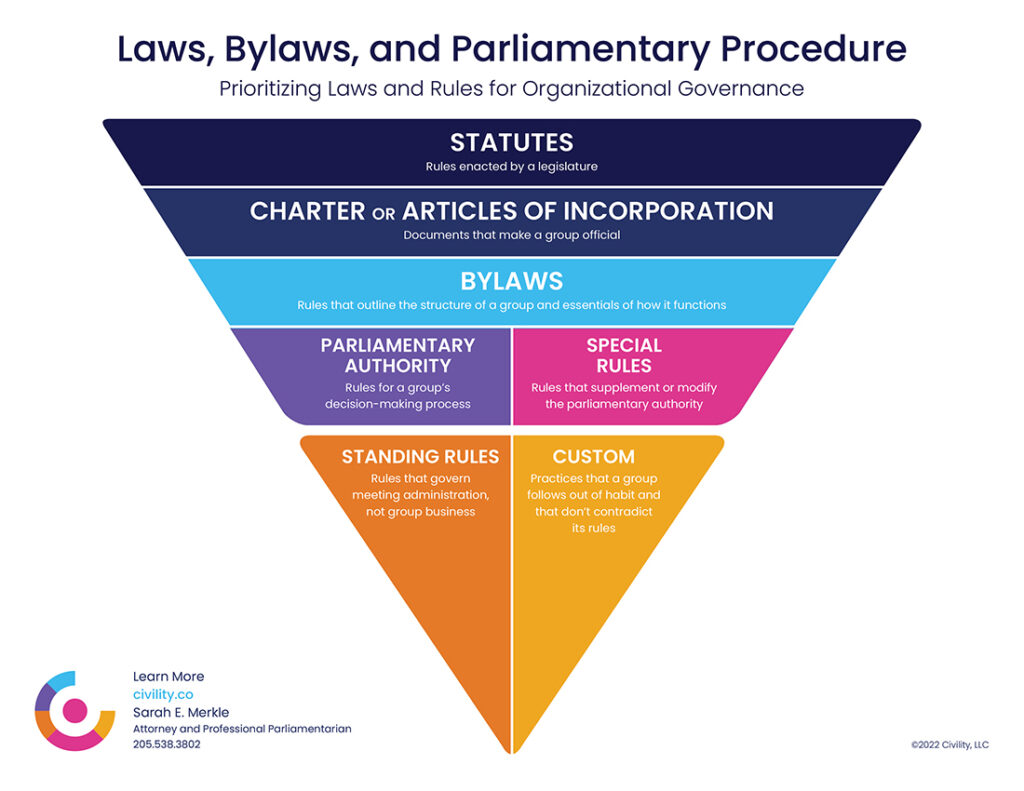As a parliamentarian, I’ve witnessed the confusion: Everybody’s cool with meetings and procedure until someone references the mysterious organizational “bylaws.” Instead of feeling comforted by this governing document, people suddenly realize they’ve never read the bylaws, can’t find them anywhere at headquarters or on the laptop of the last secretary, and have no earthly idea how they apply.
Here’s some basic bylaws info, plus why in the world they’re significant.
1. Bylaws Don’t Trump Everything
Let’s start with a simple truth: Bylaws are the go-to source for how an organization operates. They trump the parliamentary authority (think: Robert’s Rules) and any other rules that you’ve adopted. But bylaws aren’t always in charge. The law, your charter, and any other formation documents (such as, articles of incorporation) supersede the bylaws.
So, your bylaws can’t tell the organization to operate in a way that’s illegal or that’s contrary to the documents via which your group is legitimate.
Seems obvious enough, right? Well, the nuances of state law aren’t always intuitive or well-known. Best practice is to find the law that governs your kind of group, such as the property owners association act, non-profit corporations act, etc., and read it. Then check your bylaws to make sure that they don’t prescribe practices that are in direct conflict. And keep your research – you’ll need it any time bylaw amendments are in play.
2. Bylaws Should Major on the Majors
Bylaws exist to give an organization structure. They define the organization’s primary characteristics, how it functions, and the rights and duties of members.
With this principle in mind, please resist the urge to turn your bylaws into an encyclopedia that provides details on every topic your organization might need to address now and forever. Save the procedural and operational details for other documents – special rules, procedure manuals, etc.
3. Bylaws Should be Hard to Change
There’s an additional reason that bylaws should stay high-level: They are (or should be) hard to change.
Every organization is different, but typically, to change bylaws, you have to give everyone a heads-up before the meeting, and you need at least a two-thirds vote to adopt a change. (Letting you in on a secret here: It’s hard to get two-thirds of a group to agree on anything, let alone a change to a foundational document.)
So, the message is, don’t put anything in bylaws that you want freedom to change easily.
Where to Learn More


